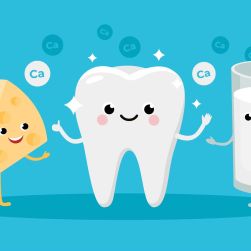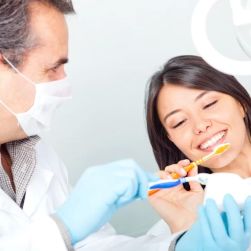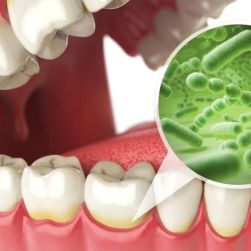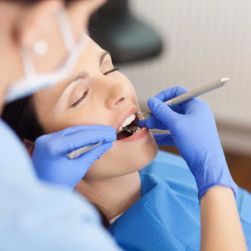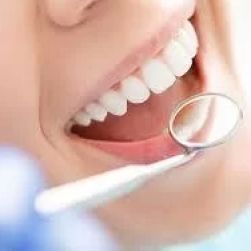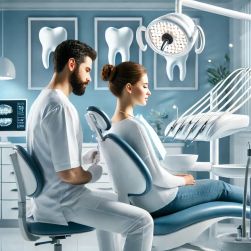Oral Health and Its Connection to Cancer Prevention
Oral health is often seen as a matter of cosmetic concern or hygiene, but its role in overall health extends far beyond just having a clean mouth and bright smile. In fact, maintaining proper oral hygiene may play a crucial role in cancer prevention, specifically in reducing the risk of certain types of cancer, such as oral cancer, throat cancer, and even other forms like pancreatic cancer. Researchers have uncovered important connections between oral health and the development of cancer, underscoring the significance of regular dental care in safeguarding overall health.
The link between oral health and cancer prevention lies in the bacteria in the mouth, the presence of chronic inflammation, and certain viral infections that can affect both oral and systemic health. For example, poor oral hygiene can lead to gum disease, which not only increases the risk of tooth loss but has also been associated with various types of cancer. Moreover, the connection between human papillomavirus (HPV), which can be transmitted through oral sex, and the development of oral and throat cancers highlights how important it is to maintain oral health for cancer prevention. In this article, we will explore the ways in which oral health contributes to cancer prevention, and how small changes in oral care habits can significantly impact long-term health.
1. The Role of Gum Disease in Cancer Risk
One of the most significant connections between oral health and cancer prevention is the relationship between gum disease (periodontal disease) and cancer risk. Gum disease occurs when bacteria accumulate in the mouth, causing inflammation of the gums, tooth decay, and, if left untreated, tooth loss. The presence of chronic inflammation and harmful bacteria in the mouth can trigger systemic inflammation throughout the body, which is known to play a role in the development of cancer.
Several studies have shown that individuals with periodontal disease are at a higher risk of developing certain types of cancer, including esophageal, pancreatic, and colorectal cancers. For example, research from the American Cancer Society found that the bacteria responsible for periodontal disease can contribute to the growth of cancer cells by creating an environment of chronic inflammation. Inflammation is a known risk factor for cancer, as it can damage healthy tissues and increase the mutation rate of cells, making them more likely to become cancerous.
Maintaining proper oral hygiene, including brushing and flossing regularly, and visiting the dentist for routine cleanings, can help prevent gum disease and reduce your risk of developing inflammation-related cancers. Additionally, if gum disease is detected early, a dentist can provide treatments such as scaling and root planing to remove plaque and tartar buildup, effectively reducing the risk of oral and systemic health issues.
2. The Connection Between Oral Cancer and Smoking
Smoking is one of the most well-established risk factors for oral cancer, but it also increases the likelihood of developing other forms of cancer, such as lung and throat cancer. The chemicals in tobacco products are harmful to the cells in the mouth, and they can damage the tissues of the oral cavity, increasing the risk of oral cancer. Smoking also contributes to gum disease and other oral health issues, further exacerbating the risk of developing cancer.
According to the Centers for Disease Control and Prevention (CDC), individuals who smoke are six times more likely to develop oral cancers than non-smokers. Smoking causes the blood vessels in the mouth to constrict, reducing the flow of oxygen and nutrients to the tissues and impairing the body’s ability to fight infections and repair damaged cells. This lack of healing, combined with the carcinogenic effects of smoking, makes the tissues in the mouth more susceptible to cancerous changes.
Quitting smoking is one of the most important steps in reducing the risk of oral cancer and improving overall oral health. Regular dental check-ups can also help detect early signs of oral cancer, such as unusual growths or sores in the mouth, which can be treated before they spread or become more serious.
3. HPV and Its Role in Oral and Throat Cancer
Human papillomavirus (HPV) is a virus that has been linked to several types of cancer, including cervical cancer, anal cancer, and more recently, oral and throat cancers. HPV is transmitted through sexual contact, and it is now recognized as one of the leading causes of oropharyngeal cancer, which affects the back of the throat, including the base of the tongue and tonsils.
The link between HPV and oral cancer is concerning because the virus can infect the oral cavity through oral sex. HPV-related oral cancers are increasing in number, particularly among men. According to the American Cancer Society, HPV-positive oral cancers are expected to become more common than smoking-related oral cancers in the near future. While most HPV infections clear up on their own, some strains of the virus can lead to the development of cancer, especially if there is ongoing irritation in the throat or mouth.
Maintaining good oral hygiene may help reduce the risk of HPV-related oral cancers. Regular dental check-ups are essential for detecting any early signs of abnormal tissue growth or lesions in the mouth, which may indicate the presence of HPV. Additionally, getting the HPV vaccine, which is recommended for both boys and girls before they become sexually active, can significantly reduce the risk of contracting the virus and developing associated cancers.
4. The Impact of Diet on Oral and Cancer Health
Diet plays a critical role in both oral health and cancer prevention. A diet high in sugary and acidic foods can contribute to tooth decay and gum disease, which in turn increases the risk of developing certain cancers. Conversely, a diet rich in fruits, vegetables, and whole grains has been shown to support both oral health and overall cancer prevention.
Research has demonstrated that antioxidants, vitamins, and minerals found in plant-based foods can help reduce inflammation in the body and protect against the oxidative stress that contributes to cancer development. For instance, foods high in vitamin C, such as citrus fruits and leafy greens, can help prevent gum disease and support the immune system. A healthy diet also helps maintain a strong immune response, which is essential in preventing the growth of cancer cells.
Incorporating a diet rich in fiber, healthy fats, and anti-inflammatory foods like berries, nuts, and green tea can also support oral health and lower cancer risk. It’s essential to limit processed foods, sugary snacks, and sugary beverages, which contribute to tooth decay, gum disease, and chronic inflammation.
5. The Link Between Poor Oral Hygiene and Systemic Health
Oral health is closely tied to systemic health, and neglecting oral hygiene can increase the risk of many chronic diseases, including cancer. Inflammation caused by untreated gum disease has been linked to heart disease, diabetes, and cancer, highlighting the importance of maintaining oral health for overall well-being. Research suggests that the bacteria in the mouth can enter the bloodstream and trigger inflammation throughout the body, including in vital organs.
Studies have shown that individuals with poor oral hygiene are at a higher risk of developing not only oral cancers but also cancers of the pancreas, liver, and colorectal region. The mechanisms behind this connection are complex, but they often involve the spread of harmful bacteria and inflammation from the mouth to other parts of the body. Keeping the mouth clean through regular brushing, flossing, and dental visits helps reduce harmful bacteria and prevents the systemic inflammation that can contribute to cancer.
6. Preventive Measures for Cancer-Related Oral Health Risks
Taking proactive steps in maintaining oral health can significantly reduce the risk of cancer-related oral health issues. Regular brushing and flossing, along with routine dental check-ups, can help detect early signs of gum disease, oral cancer, and other systemic health risks. Using fluoride toothpaste, reducing sugar intake, and quitting smoking are essential for minimizing cancer-related oral health risks.
For individuals who are at higher risk for oral cancers, such as smokers or those with HPV, regular screenings and early detection are critical. Your dentist can perform an oral cancer screening during routine visits, looking for any signs of abnormal growths, lesions, or sores in the mouth that could signal the onset of cancer. In addition, maintaining a healthy lifestyle through a balanced diet, regular exercise, and avoiding harmful substances is essential for overall cancer prevention.
Conclusion: The Crucial Role of Oral Health in Cancer Prevention
Oral health is more than just a cosmetic concern – it’s an integral part of your overall health, including cancer prevention. By maintaining good oral hygiene, avoiding smoking, limiting alcohol consumption, and staying informed about the role of HPV, you can significantly reduce your risk of developing oral cancers and other related diseases. Regular dental visits are essential for catching problems early and ensuring that you remain on the path to optimal health.
At Dentistry Toothtruth, we emphasize the importance of oral care in preventing cancer and improving overall health. To learn more about how oral health impacts your well-being, visit our Oral Health and Overall Health section for more articles and tips on maintaining a healthy mouth and body.

